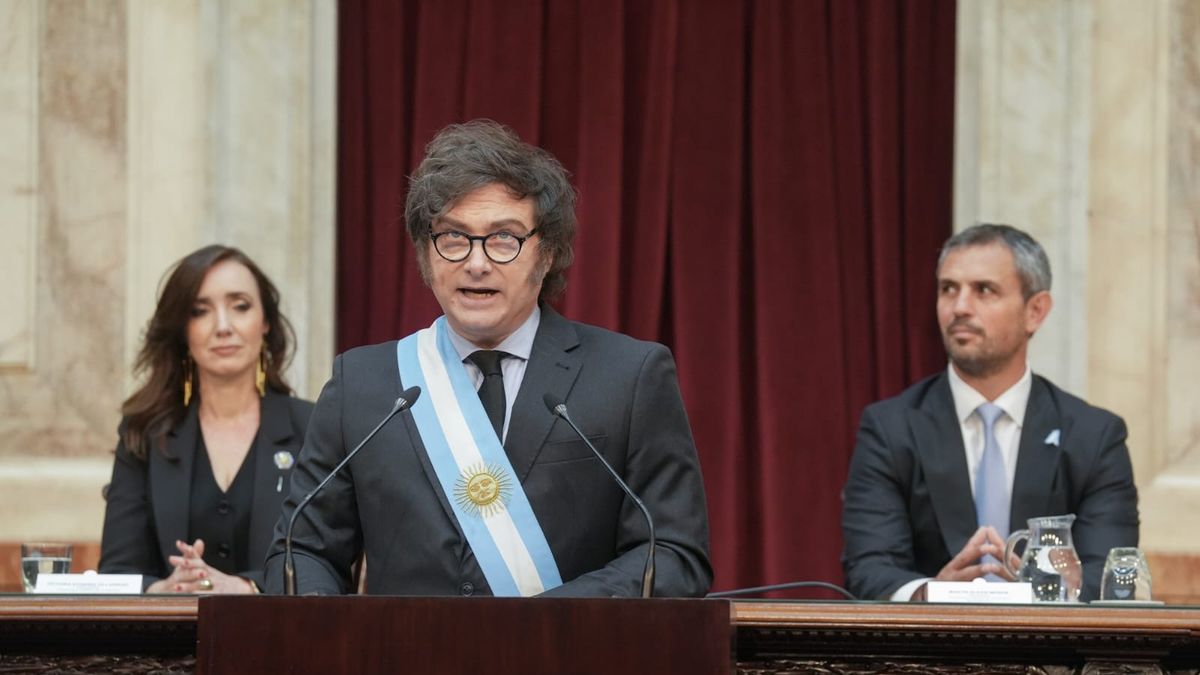Javier Milei arrived at Congress to present the 2025 Budget, with a speech that already sounds like a repeat: he targeted “the caste”, that is, the political class that already includes libertarians, and outlined some guidelines for the law of laws that will be based on the chainsaw 2.0, with a focus on fiscal balance. In addition, He asked governors and mayors for an additional adjustment of $60 billion so that the task would be successful.
The 50% capacity of the Chamber of Deputies was a painting of the political reality. Not only because of the absence of Peronism, dissident radicals and federal legislators, but also because the path of Milei’s Budget will be thorny to obtain approval. Not in vain are the opposition dialoguers summoned for this Monday, with the objective of gathering the votes. Freedom Advances to shield a third of the votes to support the veto of the pension reform. Now he will need to obtain a majority in both chambers if he wants the budget to be approved.
The President began by acknowledging that his presence was not necessary, since the presentation of the spending guidelines is usually left to the Minister of Economy. It also used to be an occasion when members of the Budget Committee would ask questions about the project. In this case, it was a monologue with some points that are already part of Milei’s rap. He called “miserable rats” He questioned the opposition, questioned the entire political class for its fondness for spending and again polarized with Kirchnerism. He said that politicians are “defrauding the Argentine people” with their spending. In his speech, the President blamed all the ills on the caste: “The politicians’ inexhaustible compulsion for public spending, which knows no budgetary restriction. Because only by spending money that is not theirs can they do business for themselves, their clients and their friends.”
“Managing is not about appointing thousands of officials in every corner of the State when all those areas should not exist, nor about making roads that lead nowhere, nor overcrowded housing that nobody wants, nor using the GDE as the candidate (Sergio) Massa said,” he said in a passage of his speech, read with difficulty, applauded wildly by his supporters.
These facts will lead to difficulties in reaching agreements, given that the roads and housing are part of the public works that the governors are demanding in order to continue supporting, among other expenditures such as transport subsidies or the financing of the deficit of the non-transferred pension funds. He transferred the chainsaw to the leaders: In addition to an additional adjustment of $60 billion, he charged them with all the palliative functions and the provision of services that the national State wants to get rid of.
“We have become accustomed to using the State as a babysitter”said the president in Congress in this regard and advocated for “reducing taxes and the size of the State, which is the real tax pressure.” He also sent a warning to Congress: “We will veto all projects that threaten fiscal balance”as occurred with the pension reform and as will occur with educational financing. He said that he will only allow an increase in spending if the proposal is accompanied by an alternative to finance it.
“Managing is deactivating the bomb we inherited, having thrown out 31 thousand slackers from the State, having eliminated the pickets and reduced homicides in Rosario by 71%,” the president highlighted, among other points, on national television, and added that “managing is shrinking the State to enhance society.”
In a note later released by the Government, it is clear: “During 2025, it is planned to once again guarantee fiscal balance to definitively correct the imbalances and maintain the conditions of stability. This will mean that for the second consecutive year the National Public Sector will not need financing through debt or monetary emission since there will be no imbalances in the public accounts.”
Another curiosity is the lexical tinkering with the trapwhose lifting is the main demand of the private sector. “After years where the political class lived putting shackles on individual freedoms, today we come here to put a shackle on the State,” he said, as a challenge to those who ask to remove the restrictions on the dollar.
Source: Ambito




